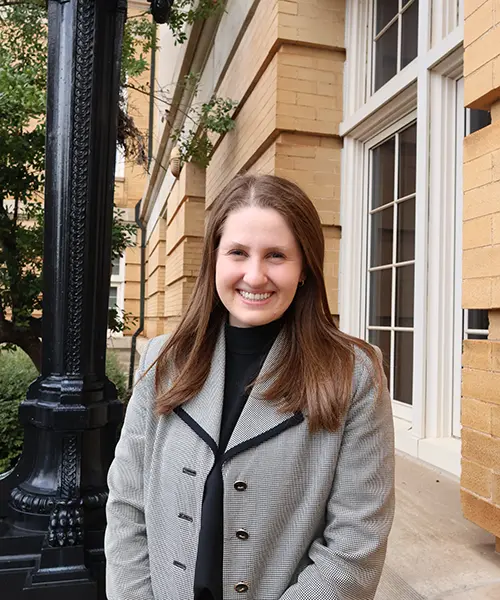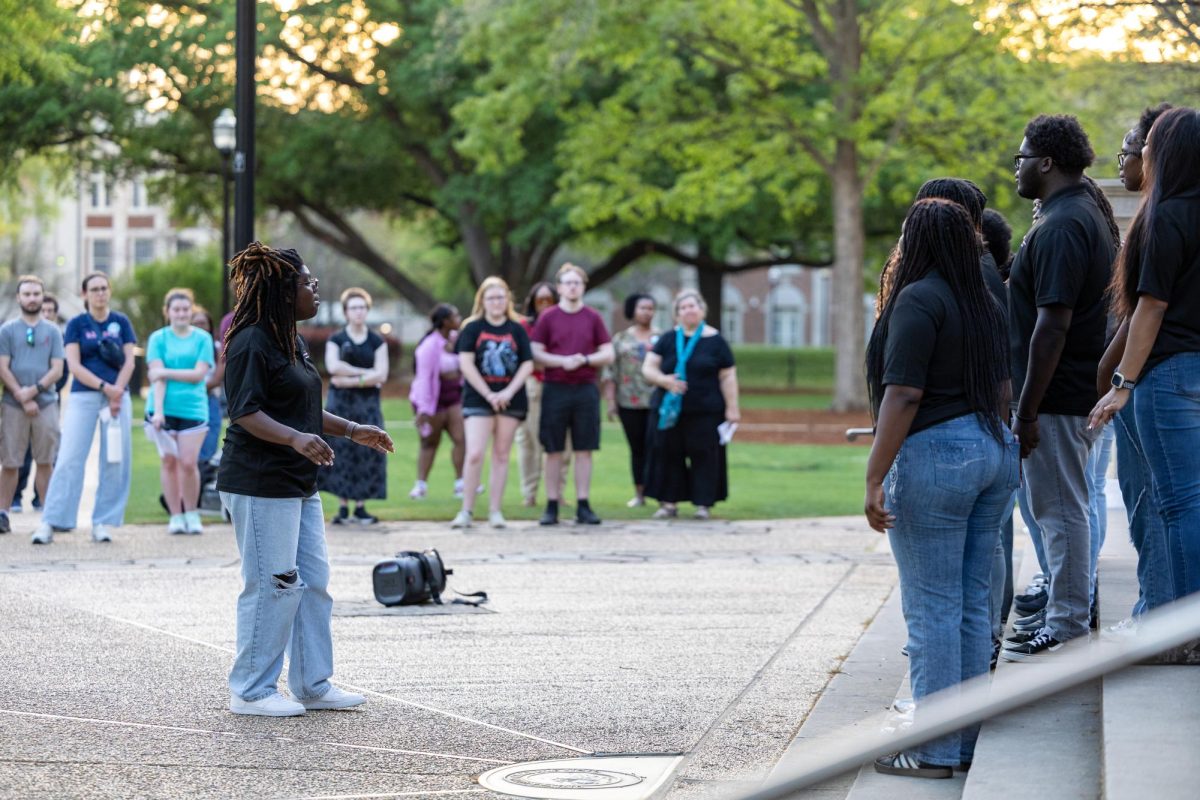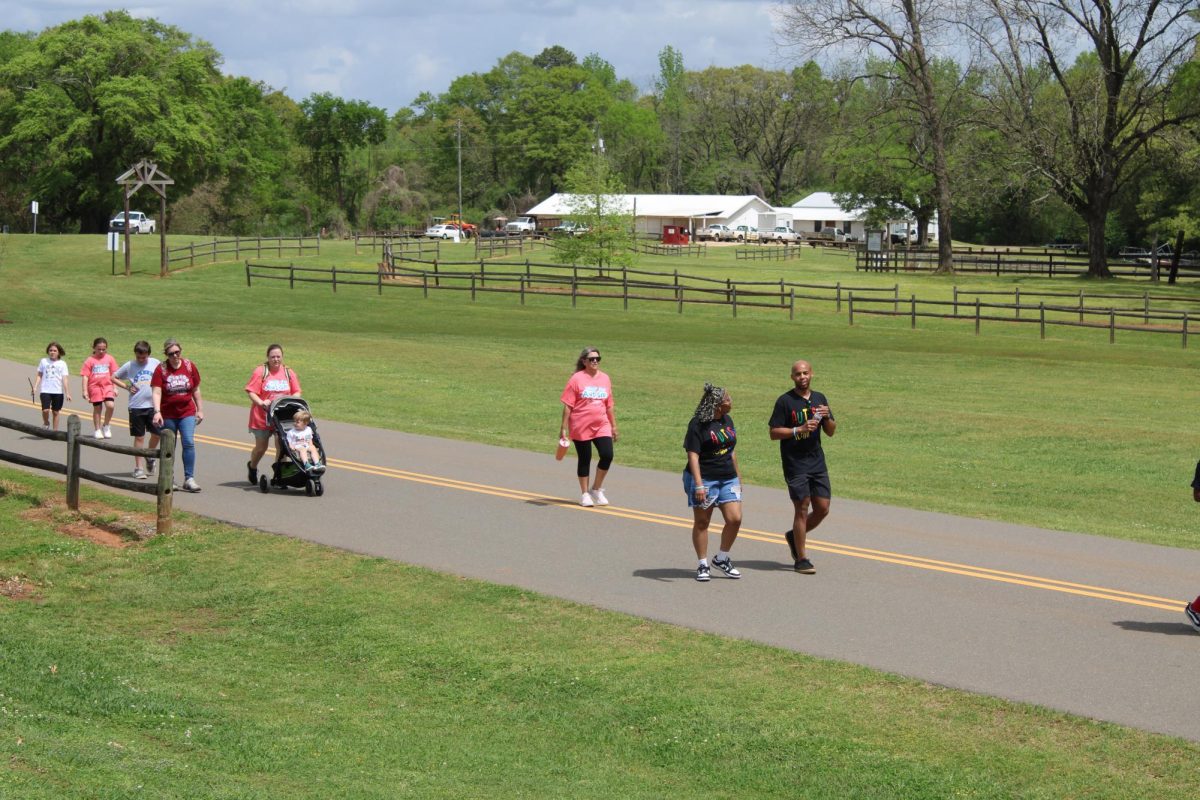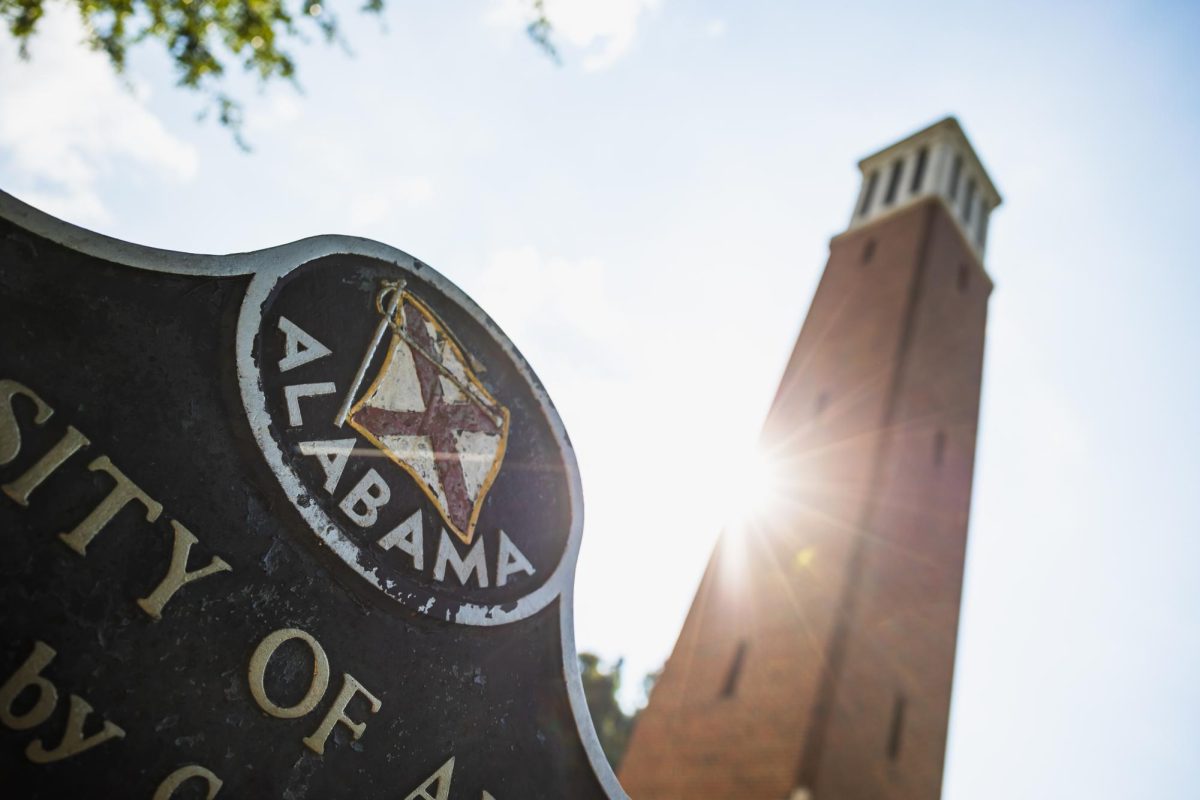
Hannah Hurd is a junior majoring in biology and an associate justice on the Student Judicial Board. She is running uncontested to be the next SGA vice president for belonging and wellness.
Q: Why is it that you’re running for that vice president [for belonging and wellness] position?
A: Throughout the past two years in SGA, I’ve had the opportunity to be a part of the judicial board as an associate justice, and I’ve gotten to see firsthand what student advocacy looks like, and advocating for the well-being of students and connecting them with resources. I want to continue to connect students with the resources that they need to succeed, and belonging and wellness have been pillars of my experience at the University, and I look forward to helping connect students with the communities and the resources and the support that they need to thrive throughout their time at the University.
Q: What are the key parts of your platform?
A: My platform centers on three main pillars. It centers on advocacy, engagement and community cultivation, so advocating for students to have the resources that they need and the support that they need throughout their time at UA, including mental health advocacy and those resources and helping students engage with SGA programming as their support then, and also helping students to build community at UA.
Q: What are two specific initiatives you want to accomplish?
A: The first initiative I want to accomplish is to get an embedded counselor in every college on campus. There’s already embedded counselors in some of the colleges on campus, but not in every college. So I want to partner with Dr. Steven Hood and the Division [of] Student Life to ensure that there is an embedded counselor in every college on campus so that all of our students have access to the mental health resources that they deserve.
Another initiative that I’d like to institute is this past year, there was a CrossingPoints representative created in the First Year Council, and I want to expand on the partnerships of SGA with the CrossingPoints program by bringing a CrossingPoints representative to the Senate.
Q: Would he or she be a voting member?
A: No. It would be a non-voting [position].
Q: What’s your time frame for that first initiative that’d be embedding a counselor in every college?
A: Absolutely. If elected, that would start immediately. I want to sit down with Dr. Steven Hood and work with him on what the procedures would be to get an embedded counselor into each college. So that would be something that I would start working on this spring, and hopefully by the fall, have that starting off in every college, [so] that students that are coming to the University, no matter what college they’re in, have access to that resource.
As a result of Senate Bill 129, which restricted diversity, equity and inclusion programs and events on college campuses, the University closed the Black Student Union’s dedicated office and the Safe Zone Resource Center for LGBTQ+ students. The University also quietly removed some funding opportunities for student groups, resulting in some affinity groups like the Hispanic-Latino Association having to delay annual events during the fall semester after being abruptly told of the changes.
Q: How will you work to rebuild that trust between students and the University, and for students who feel like maybe they were blindsided or the University wasn’t necessarily forthcoming with these changes?
A: I want students to know that I am unequivocally here for them as their vice president for belonging and wellness, and the University has been so supportive through every change, and has been incredible to provide resources to students that they need. I want to listen to student voices, and I want to increase outreach to students through my platform. I want to include more students in the SGA programming and have them know that the programming that we’re doing is SGA, is there for them, and there to support them. And so a lot of that comes with increasing the outreach of the programming that all of SGA is doing and reaching more students, especially on such a growing campus
In your position, can you commit then to bringing these concerns that students have to the University?
A: My biggest priority is ensuring that students have access to resources that they need to succeed, and so I want to listen to feedback. SGA has a lot of avenues for students to give feedback, through Bama Asks and through feedback platforms we have for programs like the Capstone Wellness Explorer. I want to listen to student feedback and implement that in the programming to ensure that all the programming that SGA is doing reflects what students want to see and what they need to succeed.
SB129 also prompted the SGA to replace its DEI Passport Program — which incentivized students to attend DEI events — with the Capstone Wellness Explorer. According to an Instagram post from Hurd’s campaign, Hurd’s platform focuses on incentivizing student organizations to co-host events eligible for the CWE.
Would that include reaching out to these affinity groups who used to have events that qualified under the DEI Passport?
A: My priority for outreach for the Capstone Wellness Explorer is to reach every student on campus. We have a consistently growing campus. Even this year, we are at record enrollment. My priority is to reach every student with our programming, because the Capstone Wellness Explorer encompasses so much throughout the seven dimensions of the Alabama Model for student health and well-being. I want to reach as many students as possible and encourage them to attend our programming and to host events.
One initiative that I want to implement is encouraging organizations to co-host and partner for events to encourage connections across different organizations on campus. I will stop at nothing to ensure that every student knows that the programming is here to support them.
Your position this year is uncontested. Knowing that, how will students be able to hold you to all these promises you’ve made to them about what you’ll do when you’re elected?
A: While being uncontested is an unconventional way to seek an elected office, that changes nothing for me about this week or the next year. My goal is to show students why I’m the best candidate for this role and to serve students. I will stop at nothing to ensure that students feel supported by me and by their Student Government Association. And so I want to encourage student feedback as much as possible, and I want their voices to be heard. Something that’s really important for me is to have a published link to book appointments with me if elected so that students are able to meet with me at any time they need to talk to me about initiatives, talk to me about ideas and know that they feel heard by me.








